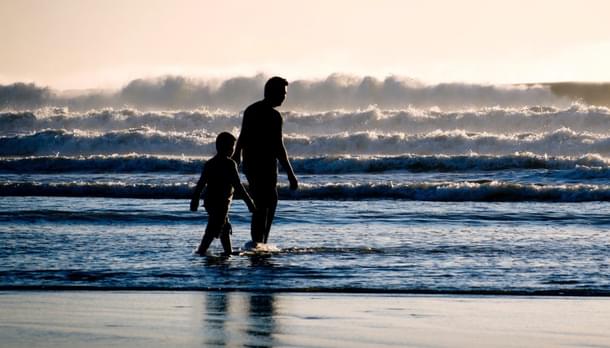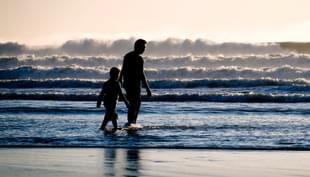Culture
The Working Class Men: Our Heroes Without The Cape
Roshan Cariappa
May 26, 2017, 01:17 PM | Updated 01:17 PM IST
Save & read from anywhere!
Bookmark stories for easy access on any device or the Swarajya app.


Growing up as bumbling kids, your first heroes are your immediate adults. They seem to have it all figured out. I mean, if you can own a bike or car, and drive one with reasonable restraint, you must have merited it through some assiduous actions. Right? For the longest time, I was convinced that my Dad and my much older cousin brother had the answers to everything of any consequence in my life -- cricket, music, school, bullies, or homework. They were Oracles in the pre-Search/Siri era. The 1990s. For the most part, you did not yet type out your questions, you asked them to real people. And you lived with the answers you got, however incredulous it seemed that storks deftly balanced newborns on their beaks, all the way to expecting mothers, or, seeds could potentially sprout plants in your stomach if you swallowed them whole.
In a world of chaos and confusion, your heroes induced order and a greater degree of certainty.
Then, around about the time I grew a fuzz, distrust set in; inadvertently at first, and eventually to the point of acute cynicism for everything that constituted the establishment. The first calamities of my new stream of consciousness were the two people I expected everything of. It was also around the time, I noticed my heroes were drastically different from the protagonists in films or television.
There were the ones with the funny capes, who dove off buildings, beat up the bad guys, and rescued little kids or pretty women. You assumed they had some sort of otherworldly superpowers and adjusted for reality. I mean, you couldn’t jump off buildings, right? But, the ones who were seemingly close to reality wore unkempt beards, shabby hair, and displayed a predilection for risk that would not make for a safe or responsible driver, quite unlike my real-life heroes. It didn’t end there. The heroes on screen seemed to have no apparent occupation other than being badass, full-time.
If there was one, it seemed of miniscule significance to the screenplay, not at all something one should have to constantly fret about, as my Dad and cousin seemed to do. I knew the names and personalities of all of their co-workers, and naively harboured angst for their irrational bosses. When the screenplay did make room for gainful employment, it wasn’t an accountant like my cousin or a technician like Dad. It generally involved high-technology or criminal investigation, the specifics of which were buried under the sheer flamboyance of their characters. There was something so obviously marvellous in their make up.
Another thing about this lot, despite the elaborate song and dance routines, they were almost never married. Well, at least not up until the very end, post all the good stuff, fight scenes and all. Sometimes, you saw a picture of the couple along with the credits. You had to assume they were married, how else would they have intimate relations with each other? That apart, marriage was not top priority to these folks. Meanwhile, Dad was married to my mother, no less. And if you spent 15 minutes with him, he made it abundantly clear that he was a family man, with a wife and kids to care for. Most often, that last bit rolled off his tongue like a common refrain. Something that did not bode particularly well for him with my still forming hypothesis.
Perhaps, what was worse than not having your heroes curry favour with writers of film and television, was them fit the role perfectly of supporting actors. The kinds who wore glasses, parted their greased hair neatly, wore a tie, and usually watched the violence from a safe distance. My brother wore a tie and taught me how to wear one, too. Although, at times irascible, my Dad seemed to generally mind his own business and not concern himself with thugs in our neighbourhood.
If cinema meant for people to make up their minds about characters you saw, you’d have to think supporting actors of the 1990s were aggressively mediocre. It was not like these guys were bad, it’s just that they were frustrating. Unlike heroes or villains, their lack of intent was flaccid and seemed to typify a mundane restraint for life that was rather sad.
If there was something they excelled at, it was in making heroes smarter, sexier, and more exciting. That didn’t read like the description of who I wanted to be. Not at 13, I didn’t. For the longest time, I associated a ten or twelve hour shift at the workplace, followed by dinner at home with the family as ordinary existence. It wasn’t that I was unhappy, just that I didn’t value it.
This lasted for about a decade. And then, somewhere, in between paying my bills, humouring my bosses (and clients), and making relationships last, it struck me. Just as the supporting actors on screen spent all their time making the heroes look good, our Dads and brothers spent their lives making us look good. Our heroes do not wear capes, their badassery is not apparent, and maybe, their monologues could use better writing, but what they do is vital to us, to our society and indeed, all of mankind.
Once, when I was a toddler, apparently Dad suspected a gas leak at our home. My mother, who can find humour in such things as her husband choosing the kids over her that day, relates to us that Dad grabbed me and my sister and rushed out. It was a false alarm. Nothing happened, nobody got hurt.
But, I always wonder how that would have played out on screen. The hero would have flung us, kids, out of the window onto a passing truck, rather conveniently stacked with sand. Dad, then lugs Mum, having fainted from the shock, all the way down two floors to realise that his kids are on route to some god-forsaken place to be reared as villains for a dramatic re-entry, later. You see? The world is a safer place with working class heroes. Thankfully.
Roshan Cariappa is an Entrepreneur based in Bangalore. He is currently building @TribeAppdotin - that helps families stay connected. He tweets at @carygottheblues.





